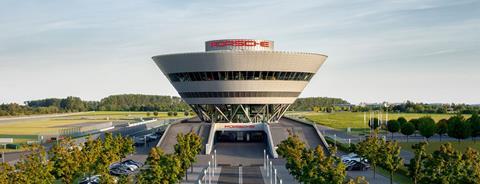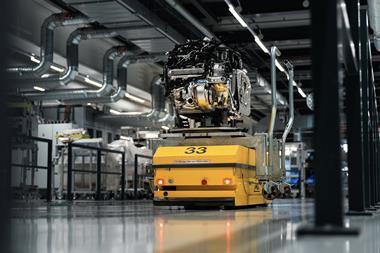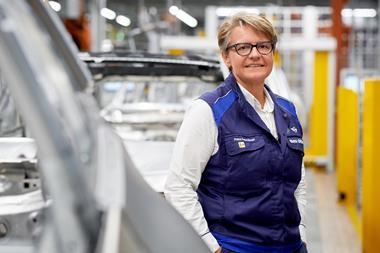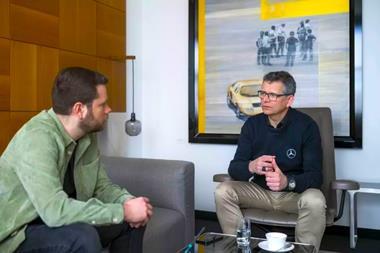The Porsche factory in Leipzig, germany has won the ‘Factory of the Year’ award, presented by consulting firm Kearney and Automobil Produktion, a sister publication of AMS.
This article first appeared in Autombil Produktion, a sister site of AMS.

The Porsche plant, which first opened in August 2002, produces the Panamera and Macan models, and is set to begin production of the first native all-electric model, the Macan SUV, using the Premium Platform Electric (PPE). Around 4,300 employees work at the site, which has automated logistics that deliver sequence kits directly to the production site, and digital support for the workers.
The judges of the award said they were impressed by the clear roadmap towards the Zero Impact Factory 2030, including the comprehensive energy monitoring system and smart heat utilisation at the plant.
“The Porsche plant in Leipzig is characterised by strong production figures, which are particularly evident in the dimensions of functional excellence and digitalisation,” said Daniel Strengel, director at Kearney and project manager of Factory of the Year. “In addition, the management of the plant is proactive and motivated in tackling new challenges. The jury was particularly impressed by the clear communication of the strategy and the upcoming implementation plans to all employees and departments.”
The next Factory of the Year awards will take place March 14-15 in Leipzig, Germany.
Albert Reimold, member of the Executive Board for Production and Logistics, Porsche AG said: “With the Smart Factory, Porsche is taking on a pioneering role, and setting the course for the future of automotive production. With the Panamera, the Macan and, in future, the electric Macan, the plant is making a significant contribution to Porsche’s success. The Leipzig site is also characterised by its special team spirit.”
The greatest common denominator among the award-winning companies in 2023 was the democratised introduction of digitalisation and automation solutions. According to Kearney expert Stengel, the fact that software and programming in the automation sector have become significantly simpler has, on the one hand, reduced the barriers to entry for automation projects and, on the other, enabled the regular team to become active themselves without the need for a specialist.






































No comments yet